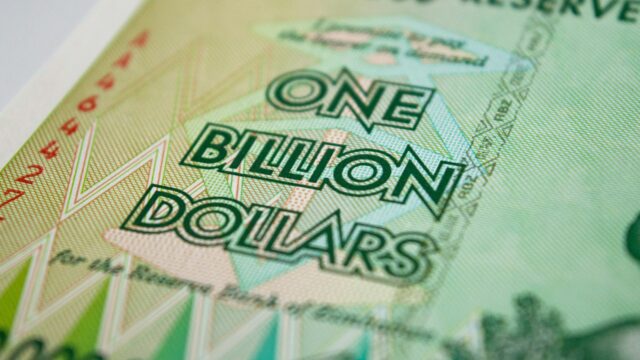Reforming Electronic Markets, Trading and the Anglo-Saxon Model

On 3rd November, GEC member Ethical Markets brought together a key group of financial experts in New York City to understand the dangers of high-frequency trading (HFT) and consider the potential for financial market reform
Computer-driven financial markets on unregulated electronic exchanges programmed by algorithms now dominate Wall Street, along with high-frequency trading (HFT). The infamous “Flash Crash” in May 2010, driven by electronic trading, caused stocks in many 401Ks to suddenly fall to pennies and recover in split seconds. Small investors lost confidence, pulling some $70 billion out of stock markets.
While Wall Street recovered, trust eroded further due to the losses, foreclosures, job cuts and taxpayer bailouts after the 2008 meltdown. Today, the public’s trust is battered by news of fraud, insider-trading, rigging of interest rates and huge fines on formerly admired banks paid by shareholders and taxpayers instead of indicting financiers. Regulators in Washington are out-gunned by the faster computers and technology of HFT. Even market players are sounding alarms.
In 2011, after contacting the SEC, Themis Trading, a respected firm with many pension fund clients went public in Broken Markets, co-authored by principals Sal Arnuk and Joe Saluzzi, alerting all investors to the dangers of electronic front-running and other manipulative practices of HFT and the electronic exchanges on which they trade. Wall Street Journal reporter Scott Patterson published Dark Pools (2012). CBS TV’s 60 Minutes covered how Wall Street and global finance was morphing into a complex, unregulated casino. The public remained suspicious but mystified until Flash Boys by Michael Lewis, a former Wall Streeter, became a global best seller in 2013, explaining in simple terms how “Wall Street is rigged.”
Yet, while regulators were out-gunned, reforming financial markets remains urgent, since markets always perform vital services in all societies as recorded throughout human history and always circumscribed by cultural ethics, rules and regulations. Today, public and NGO pressure on companies and governments have forced reforms: on tax evasion, cancelling billions of un-repayable debts of poor countries, on safety, pollution control, working conditions, minimum wages and demands for below 1% taxes on all financial transactions, allowed in many countries.
“ Why are you trying to retrofit these malfunctioning Anglo-Saxon economics-based financial market models? Why not look globally and come up with financial markets designed to cope with new conditions, growing population and real risks and opportunities on our planet – for long-term sustainability for all societies?”
Today’s agenda is to reform electronic markets and trading, since all the progress by investors in shaping more responsible corporate and financial practices can be undermined if the markets’ underlying plumbing and structure remain unsound. Today’s broken markets are subject to new manipulations and misuse of computers and electronic platforms resting on global communications infrastructure: satellites, the internet, fiber optics, the electromagnetic spectrum – all public goods funded by taxpayers.
To advance reform, Ethical Markets convened a key group of experts in New York City, Nov. 3, 2014, to assure more stable market structures, restore confidence and prevent the next market crash that many believe is inevitable. Each participant submitted a prior statement of their views and reforms they favored. We covered a wide range of proposals, many already aired in Congressional hearings by the Senate Committee on Finance and chair Carl Levin (D-MI), with testimony by Brad Katsuyama, CEO of IEX (“hero” of Michael Lewis’ Flash Boys) and Dave Lauer, CEO of KOR Trading.
Experts also included Joe Saluzzi, co-author of Broken Markets; Robert Zevin, Boston-based pioneer of screening for responsible funds, including Calvert; Katherine Collins, Honeybee Capital, author of The Nature of Investing (2013); Joel Beck, COO, Cornerstone Capital Group; veteran Wall Streeter Michaela Walsh, founding president of Women’s World Banking, author of Building a Movement (2013); William Doll, Founding Partner, The Syneidesis Group; Gerald Lam, Marketing & Communications Strategist, and John Ramsay, Chief Compliance Officer, both with IEX; Stuart Valentine, Centerpoint Investment Strategies; and Simon Zadek, co-director for the UN-led Inquiry on Design of Financial Systems for Long-term Sustainability.
The focus was on restoring confidence and trust through greater transparency and market-based reforms were favored by most. No one expected action out of Congress or regulators any time soon. Technological design reforms included the IEX electronic platform, founded in October 2013 and now trading larger volume than the AMEX exchange and described in Flash Boys. IEX now has major investors and has applied to the SEC to become a fully-fledged public exchange. The ingenious design of its platform excludes HFT traders and restores trust by providing a secure, transparent venue and simple order types for investors. Dave Lauer’s KOR Trading non-profit arm, Healthy Markets, developed a higher standard for brokers: Best Execution Accreditation (BestEx) which creates a “virtuous circle” akin to ESG standards and B Corporations. Ethical Markets endorses BestEx and will be exchanging logos and information with Healthy Markets.
Ethical Markets’ fuller report is forthcoming. The most sobering input came from Simon Zadek’s global UN perspective: “Why are you trying to retrofit these malfunctioning Anglo-Saxon economics-based financial market models? Why not look globally and come up with financial markets designed to cope with new conditions, growing population and real risks and opportunities on our planet – for long-term sustainability for all societies?” This is the deeper agenda of Ethical Markets, our Green Transition Scoreboard® and Ethical Biomimicry Finance®.
Hazel Henderson, President, Ethical Markets Media
This article has been reposted in part from CSRwire, the original is available here.
Image credit: "Fearless Girl Statue by Kristen Visbal N" (CC BY 2.0) by Anthony Quintano


